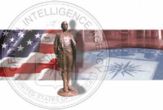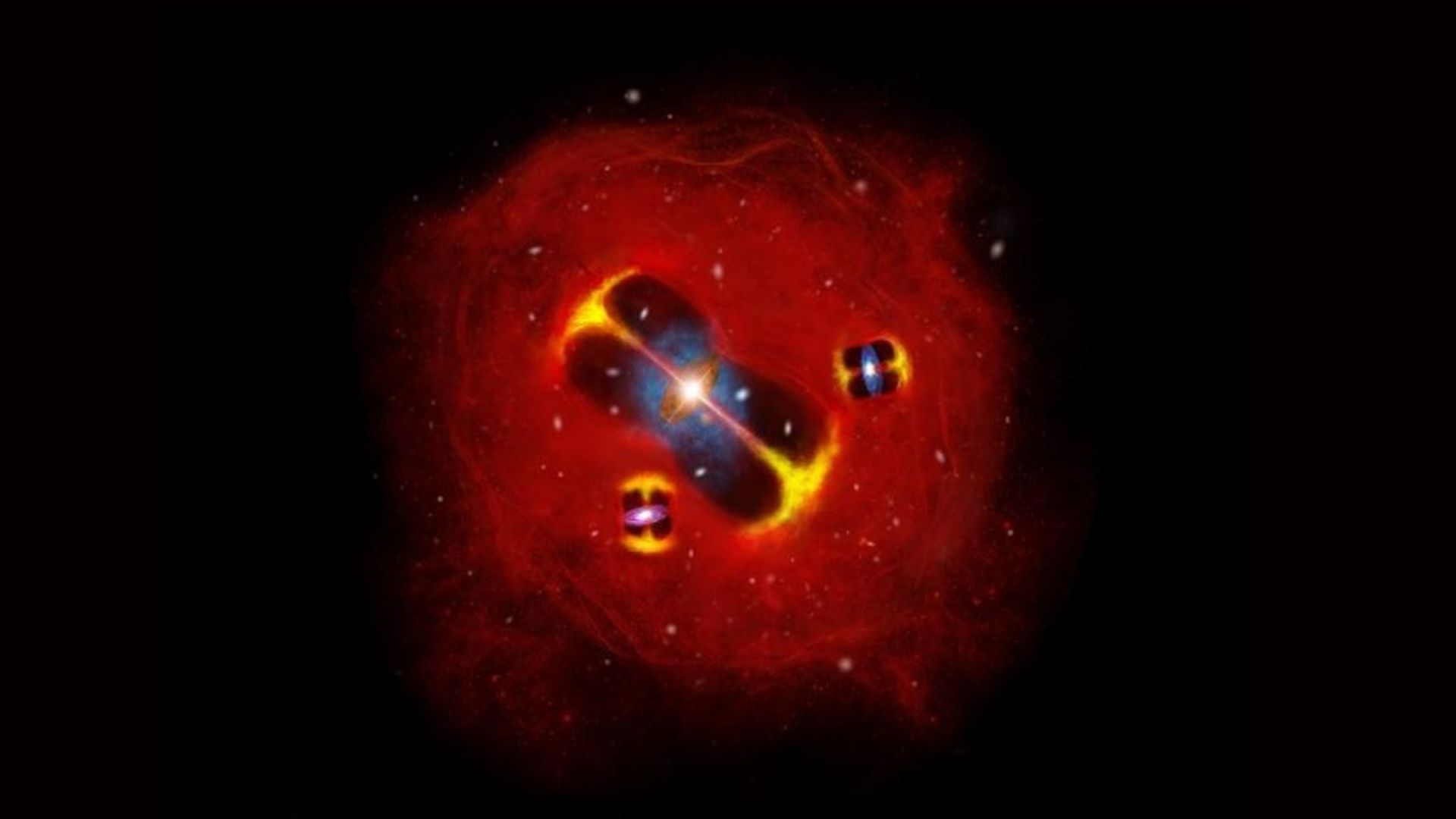Is this Article on Conspiracies Part of a Conspiracy?

Forty-three years after that Friday in Dallas, JFK is still the victim of a massive conspiracy, Elvis is still alive and presumably eating chocolate-covered fried chicken, and Paul McCartney is dead.
For those who don't know, Paul supposedly died in an automobile crash in 1966 and was replaced by a double. The new Paul—or "Faul" (for "Fake Paul")—has been impersonating him for, lo, these many years.
One Web site, at www.uberkinder.5u.com/paul/, not only has all the usual clues from the Beatles's album covers and music but compares voices and superimposes pictures of Paul at various times during his career to contrast noses, chins, bone structure, etc. There really is a lot of evidence to support the theory that McCartney is dead. The idea is presented cogently and backed by mountains of evidence. Like so many theories, it is neat and plausible, but, nonetheless, wrong.
The reason conspiracy theories are such an important subject is that we exist in a world awash with them: Kennedy, the origin of the AIDS virus, our supposedly faked moon landing, the death of almost anybody famous (Lennon, Princess Diana, John Kennedy Jr., Elvis, etc.), the government being involved in inner-city drug conspiracies, and on and on it goes.
But some might inquire what difference it makes if people believe in cloyingly clever canards.
We dwell in a world where fairy tales and fictions are already the norm. According to articles I've read, 70 percent of the public believes that there was a vast conspiracy to kill JFK, 80 percent believes in the existence of UFOs, and approximately 95 percent believes in supernatural beings such as ghosts, gods, devils, angels, and poltergeists.
In effect, everything in the world of conspiracies is the opposite of what it is in reality. Paul McCartney, who is really alive, is dead; Elvis, who is really dead, is alive. Since so many people saw JFK being fatally injured, you can't say he's alive, so they go for the next best thing: massive conspiracy. Whatever is . . . isn't. Whatever reality you don't like, you can change with the handy eraser on the end of your pencil-like head.
Get the world’s most fascinating discoveries delivered straight to your inbox.
So what difference does it make? I maintain that one of the reasons the world is in the jolly shape it's in is that we have many people believing in and, more significantly, acting upon things that are simply not true. When we believe in fairy tales, we keep ourselves timorous children. We lose our individual strength and begin looking to things outside of ourselves for that strength and guidance.
Let's look briefly at the most famous conspiracy theory, JFK's assassination in Dallas. [See also Massimo Polidoro's column "Facts and Fiction in the Kennedy Assassination," Skeptical Inquirer, January/February 2005.] Seventy percent say it was a conspiracy. This makes not believing it was a conspiracy seem naïve, gullible—well, let's face it, downright jug-headed.
Much is made of the grassy knoll, located in front and to the right of Kennedy when the shooting occurred. Many people have opined that the shots came from there. Oliver Stone, in his movie JFK, suggests that the horrific head shot that killed Kennedy came from there.
As a young boy, my father took me out hunting probably hundreds of times. I shot hundreds if not thousands of animals (something I no longer do). All of the animals that met their deaths from my gun (deer, rabbits, squirrels, birds) died the same way: small holes where the bullet entered, perhaps a minuscule trickle of blood, and, if the bullet hit bone, massive, craterlike holes in their bodies where the projectile exited. It's simply a case of physics. No bullet ever made has the ability to tear large holes where it enters; it can only create them where it exits. This is because the bullet is intact when it enters and then explodes or fragments upon hitting bone.
And the same is true of the bullet that struck JFK. As anyone who has ever hunted could tell you, the head shot that took the front right part of Kennedy's head off could have come only from behind. There is no other possibility, so scratch the grassy knoll.
The second area of doubt I would like to broach is the following, which I have never, by the way, seen addressed or answered in all my years of reading about the Kennedy case. If Oswald was part of a grand conspiracy and was ordered, commissioned, and paid to execute the president, is the method of getting a job in a building and then hoping you get lucky with the target actually driving by a viable hitman strategy? Obviously, Oswald didn't go to Kennedy—as all other hitmen do; Kennedy came to Oswald. Does this really sound like a conspiratorial plot to you? Or does it sound like what it was, not a crime of conspiracy but a crime of opportunity?
By the way, Kennedy wasn't scheduled to go to Dallas until just a couple of days earlier. His staff made a last-minute change for him, so he could go stumping (i.e., campaigning) for Democratic congressional candidates. Nowhere in the years since the shooting have I ever read or heard that anybody has ever suspected Kennedy's own inner staff of setting him up. They question every other aspect of the case from A to Z, but I don't know of anybody, official or unofficial, who has suspected the staff within the White House of being part of a grand conspiracy. His being rescheduled for a visit to Dallas was just one of those things that comes up all the time in politics.
The thing that caught my attention about the McCartney conspiracy case was that it had so much detail, just like the Kennedy case. There are literally hundreds of pieces of "proof" that McCartney is dead. His height changing in different pictures, voice analysis, picture analysis, and on and on. As with the Kennedy case, there are endless pieces and tidbits here and there that can be combined to make it look like a strong case.
However, anything, anywhere or anytime, can be made to look like a conspiracy, if that is what your agenda is at the outset. There are such things as inductive and deductive reasoning. In deductive reasoning, you start with a premise or hypothesis (e.g., Kennedy's assassination was a conspiracy) and then you look for all the pertinent information, modify it to suit your hypothesis, and throw out all that doesn't fit.
It's what we use in our adversarial legal system. One side scours for what it wants to find and so does the other, to support their diametrically opposed theories of the case. What it really comes down to is modern-day sophism; you have parties spinning theories and then finding, spinning, or cooking up evidence that supports what they want to believe. (It is, in my always humble opinion, one of the principal flaws in our legal system.) Deductive logic is by far the most prevalent way of thinking in our society. The other method is using inductive reasoning. Withholding judgment or theory, looking at all the evidence, and then formulating your belief or theory based on all of the available evidence—regardless of what you may prefer the evidence to say. This is actually one part of the scientific method.
The fact is that Kennedy was shot by Oswald acting alone. We did go to the moon. Inner-city drugs were not the result of a massive government conspiracy. John Lennon was murdered by a lone religious nut (crazy but, nonetheless, religiously motivated by Lennon's remark about being more popular than Jesus). Princess Diana was killed by a drunk driver. JFK Jr. died when he flew into dark cloudy skies without being appropriately trained to fly by instruments alone. Elvis died from too many pills and too much fried chicken. The government did not create AIDS.
And, while I'm on this subject of government conspiracies, let me add something. Unlike on TV and in films—where government agencies are often flawlessly competent—we too often see evidence to the contrary in real life.
Think about that for a minute. At the time of this writing, Osama bin Laden is still at large. The FBI couldn't find the Unabomber for eighteen years, until his brother turned him in. This is why I find it hysterically goofy when I hear and read about these great conspiracies that presumably include hundreds of people over the span of many decades. They're going to keep hundreds of witnesses, investigators, and agents quiet about the Kennedy case? Hundreds of people over decades? Kill the info about UFOs? There are no James Bonds here. No Moriartys, no Holmeses, not even any Watsons. No Goldfingers, either. This is the gang that said security guard Richard Jewell was the Olympic Park bomber. Grand conspiracies, folks? Ha ha ha.
In point of fact, my only concern involving the government in this area is that someone will plant a bomb right on top of the Statue of Liberty's noggin and the agencies will mistake it for an alarm clock. Of course, I could secretly be an op of the government hired to write articles like this to throw people off the scent. I bet I didn't fool you one bit, did I??
The article first appeared in the September/October issue of Skeptical Inquirer magazine. Chris Volkay wrote “Bigfoot, Pluto, and ?” in the January/February 2007 issue of the magazine.


